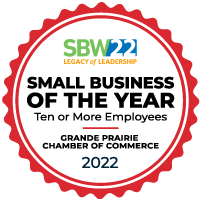Starting an online store appears to be the perfect solution to grow beyond the four walls of your business or earn some extra income. After all, an online store is relatively inexpensive to start, and presents a tremendous opportunity for growth. How could you fail?
But the reality is that it’s not as dreamy as it sounds. The process of growing a successful online business is fraught with pitfalls, complications, and most of all, hidden costs. In this article, we’re going to debunk some of the common myths of being successful as an online seller, and hopefully help you make a more informed decision about your next venture.
Myth #1: I Can Start It For Next to Nothing
Online businesses are often viewed as cheap alternatives to starting a brick & mortar store. After all, you don’t need to lease an expensive space, hire staff or pay utilities. All you need is a comfy pair of shorts and a shopping cart, right?
Not exactly. There’s a very big difference between simply starting an online store and actually making it successful. The latter is relatively cheap to do, the former is quite the opposite.
The Costs People Never Think About
- Legal & Accounting Fees – If you’re serious about online sales, you’ll need to register your business and get a good accountant, bookkeeper, and lawyer on board to help you. These people will be invaluable in helping you plan and grow any type of business. If possible, look for firms with experience in the online space, and remember, good advice doesn’t come cheap.
- A Business Plan – Any good business idea starts with a plan. And unless you have an accounting background, chances are, you’re going to need some help to write it – especially the research and financial projections. Your lawyer, bookkeeper and accountant can help you with this, but it will cost money. Make sure to allocate some startup funding towards developing and vetting your plan.
- A Proper Brand & Website – If you’re aiming for success, it’s going to mean not cutting corners on the important things. Your online storefront is the only face your customer will see and interact with, so you better get this right. Presenting a poorly designed, hard-to-navigate site is not going to draw credit cards out of hiding. You must be prepared for the immense amount of work and cost it takes to build a proper online store. Aside from programming and design, you must consider the overall marketing strategy, professional product photography, compelling product descriptions, data entry, and all of the important details like a privacy policy. Depending on where you go and how much of this work you will do yourself, your cost can vary wildly. With an agency partner, be prepared to invest anywhere from $15,000 – $100,000+ as a starting point for a full-service solution.
- Marketing – One of the biggest mistakes you can make is underestimating the cost of marketing your online store. While e-commerce puts you in front of a world of customers, it also puts you in front of a world of competitors—very established competitors with very deep pockets. And because you don’t have a physical storefront acting like a permanent billboard, it’s arguably much more difficult to gain traction as an online store. For this reason, be prepared to invest heavily into your marketing, especially in your first year. There are no hard and fast rules of what you need to spend, but generally the larger the region, the broader the target market, or the less differentiated the product, the more you will need to invest to compete. One way to estimate your marketing costs is to allocate 5-10% of projected annual sales towards your marketing. So if you plan to make $500,000, expect to spend $25,000-$50,000 in marketing. Whatever you do, don’t be tempted to cut corners on your marketing budget. Assume the very worst, and then add another 30% for safety. Then you’ll have a realistic idea of the cost of marketing an online business.
- Constantly Changing Needs, Customers & Technology – If there’s one thing that’s certain in business, it’s change. And in e-commerce, change happens much faster. If you’re serious about having an online business, you need to be prepared to dish out for ongoing service & support to maintain and constantly improve your website, brand and marketing to adapt to changing technology, customer needs and opportunities. Budget to have a reliable and knowledgeable partner available on moment’s notice.
- Order Fulfillment & Inventory Management – Often overlooked, this is one of the most complicated and time consuming areas of running an online business. No online business can succeed if these areas are not handled accurately and expediently – especially if you want to reach the volume of sales that will make this all worthwhile. Be prepared to invest in staff, supplies and building the systems required to handle the volume of sales you are projecting. Or, budget for a percentage of sales towards a third-party fulfillment provider.
- Customer Service – As an online business, you need to pay special attention to customer service. This means being available by phone, email, social media and possibly online chat on a “now” basis. Online shopping is relatively impersonal, and there is very little friction stopping a customer from clicking back and finding your competitor. If you don’t help them immediately, you may not get a second chance. Who will field these inquiries? Budget to get some help in the form of an part-time staff person or call centre should sales start to pick up.
These are just a few of the costs of building a successful online business. Don’t underestimate them – in some cases they can easily end up being in same ballpark, or even exceeding, the cost of starting a brick & mortar location.
Myth #2: I’ll Be The Next Big Hit
For some reason, when you put the world “online” beside the word “business,” people take a sigh of relief. Something about the word “online” makes it seem easier. Like it’s not a real business with all of the challenges, costs and complications associated with one.
Well, my friends, make no mistake—an online business is a true, no-holds-barred, bona-fide business. And if you’re going to be successful at it, you’re going to need to invest the exact same kind of time, thought, effort and money to make it work.
So wipe that smirk of entrepreneurialism off your face. There will be no wind blowing in your hair as you casually gaze over the valley from your perch atop the mountain. No sir, you’re going to be in the mines, under the mountain—sweating, toiling, and working harder than you ever have in your life. Say goodbye to your weekends and evenings, especially in the first few years. Just like any other business, you’ll have to work your ass off to be successful.
Myth #3: If I Build It, They Will Come
This statement is why most people underestimate the cost of building a successful online business. They assume that by simply setting up a website and putting it online, sales will start trickling in. On the more reasonable side of the spectrum, they expect them to slowly start trickling in. On the more manic end of the spectrum, they expect several orders on the first day. Anybody who has tried this will quickly learn that unless they have a differentiated offering, a great website, and a healthy investment in marketing, they’ll be lucky to find a sale in the first 6 months (save perhaps, from your friend or your mom.) This is not to say that success is not possible, but it isn’t going to happen overnight, and it certainly isn’t going to happen on its own. What you put into it, you’ll get out of it.
Myth #4: I Can Do It All Myself
You can save a lot of money by doing things yourself, sure. But you’ll be more likely to burn out before you make enough money to recap your initial investment. This ties very closely in with what I said in Myth #2 – just because it’s online doesn’t mean it isn’t a business. And anybody who’s in business can tell you, you can’t do it alone. At least not after a certain point. So make sure that your business plan includes paying yourself, and possibly a few staff members, a living wage. Otherwise you’re not running a real business… you’re running a sweatshop where you’re the only one sweating.
Myth #5: If I Show Up In Search, I’ll Get Sales
Google is viewed as the lightning rod of online sales. Getting a great placement in Google can drive a lot of business your way, but that’s not all it takes. Remember that Google can only get people to the door – don’t forget something has to happen after they arrive. If you don’t have that worked out, you won’t get far. Plan for, and invest in, help with constantly measuring, optimizing and improving your website experience (see Myth #1.)
Myth #6: I’ll Be Free to Do Whatever I Want
This one makes me chuckle every time I hear it. It’s the same myth that comes with being your own boss, but it’s made even worse by adding the word “online.” Don’t put your comfy shorts on yet. People shop online for convenience. And convenient for them may mean bed time for you. All of these things need to be considered as part of your lifestyle.
Is It All Bad?
No, it isn’t. There are many advantages of selling online, and it can be done with the right planning and realistic expectations. The most important point I want to convey is that an online business takes just as much time, money and work as an offline business to build (in some areas, even more.) Make sure you’re prepared for this before pulling the trigger. With the right approach and enough determination, it is possible to be successful online.










